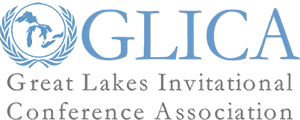Matt Sunderlin 11/28/2021 20:40:52 67.149.112.212
Topic:
Country: Kenya
Delegate Name: Will Allen
Worldwide over 3 billion people have been filly vaccinated for COVID 19. Many developed countries, such as the United States, have a population which is majority vaccinated. However in a underdeveloped country such as Kenya, it can be a challenge for the majority of citizens to get vaccinated. This is a problem because citizens in an underdeveloped country don’t have access to the healthcare that other countries have
Out of a population of 53 million, only about 2.4 million are fully vaccinated according to Our World Data. Once you do the math, that is only 4.5% of the population in Kenya fully vaccinated. This is a problem because in a semi-developed country such as Kenya, 36% of the population lives below the international poverty line. This can make it very difficult for many Kenyans’ to receive th eproper healthcare, and receive the vaccine. According to AXIOS, over 50% of unvaccinated individuals live in a place with a household income of less then $50,000 USD. The average housheold income in Kenya is ~$28,000 USD, which directly correlates to the low vaccination rates in certain areas on Kenya. Lack of access to vaccines is an issue as well. Even is densely populated cities, such as Nairobi, with a population density of over 6,000/sq km, still have troubles witht the access to the vaccine, with only 22% of the city being fully vaccinated.
Something we could do about this is make vaccines more readily available in easier to access places, such as local clinics or pharmacies, instead of being most readily avaibliue at big hospitals in the most populated city in each province, distribute them to local clinics in smaller, more rural cities. This can stop the spread of COVID-19 because smaller cities will be fully vaccinated, preventing spread in those communities. Adding them to clinics in suburbs of bigger cities in beneficial too, as people working in dense work spaces can easily spread disease. Giving everyone accses is very benefical because it can and will prevent the spread everywhere.
Our goal in this is to make vaccines more avalible to everyone, whether they live in a densely populated city, or in a small time hundred of kilometers away. Doing this can help us create a healthier and safer country and help stop the spread of COVID 19.


